AI-AIoT
How to Benefit from AI In the Healthcare & Medical Industry
If you work in healthcare and medicine, take some minutes to browse our in-depth analysis on how artificial intelligence has brought new opportunities to this sector, and what tools you can use to benefit from them. This article is part of GIGABYTE Technology’s ongoing “Power of AI” series, which examines the latest AI trends and elaborates on how industry leaders can come out on top of this invigorating paradigm shift.

Introduction
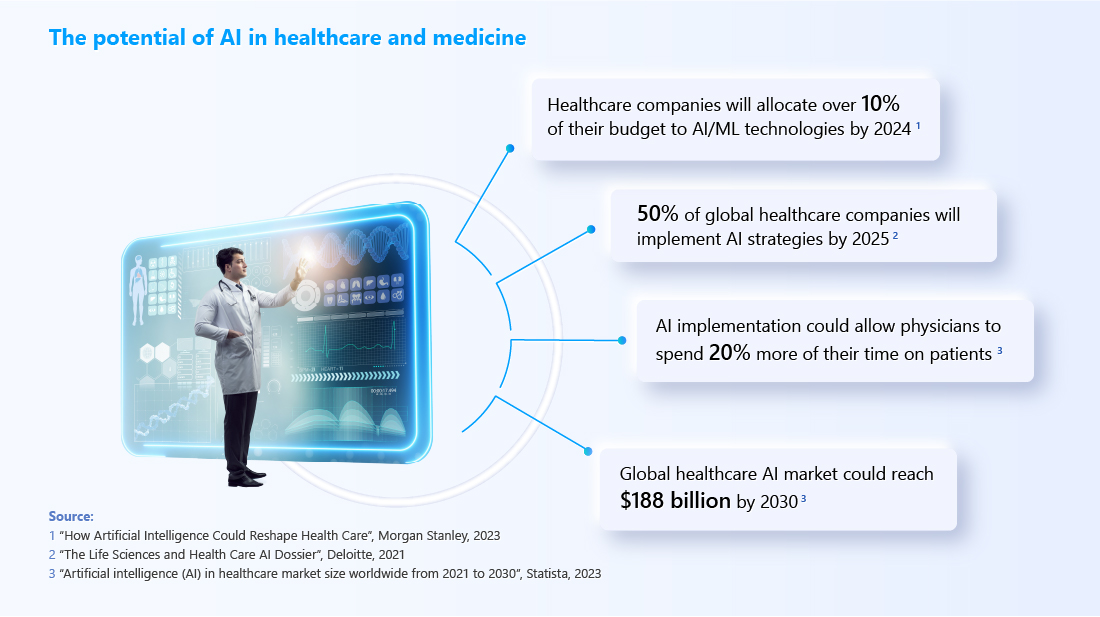
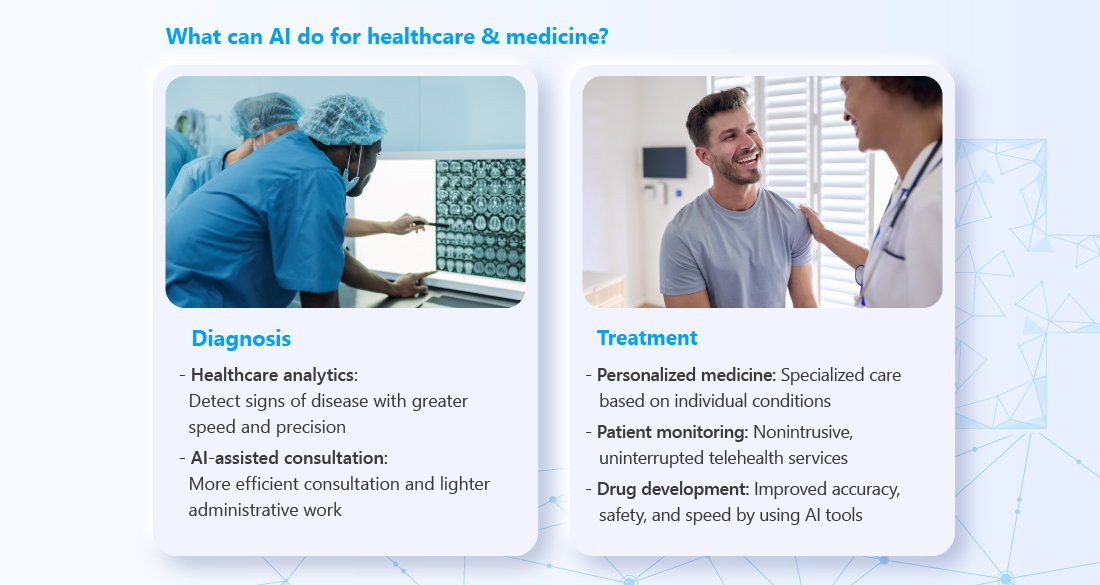
Diagnosis: Healthcare analytics detects signs of disease with greater speed and precision
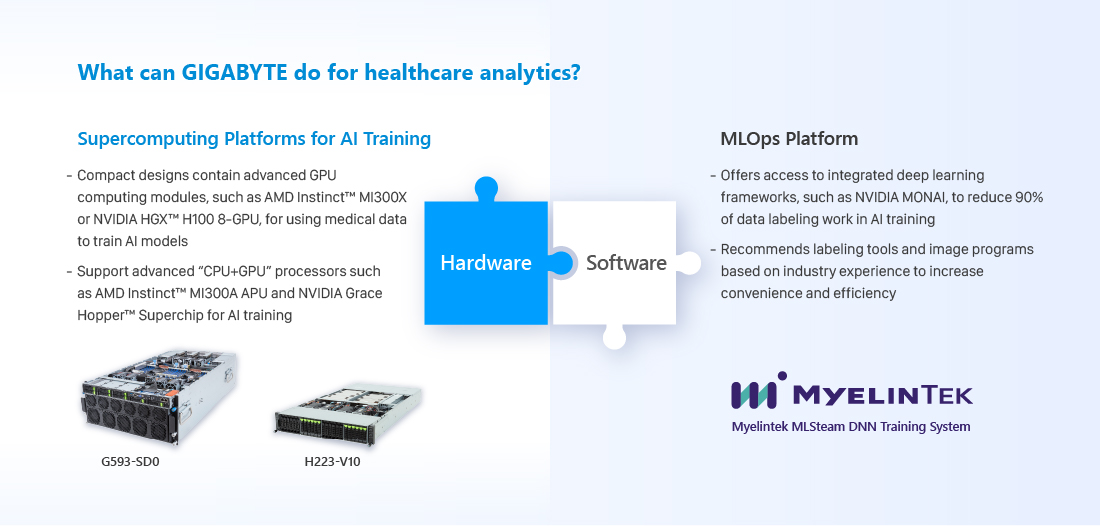
Diagnosis: AI-assisted consultation means more efficiency and lighter administrative work
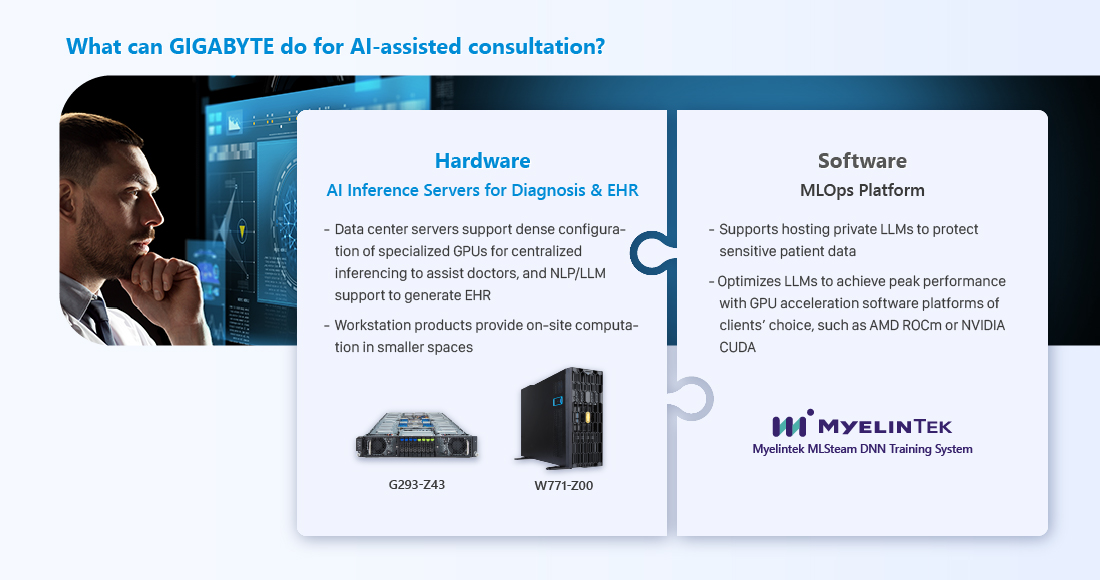
Diagnosis: Recap
Treatment: Personalized medicine provides specialized care based on individual conditions
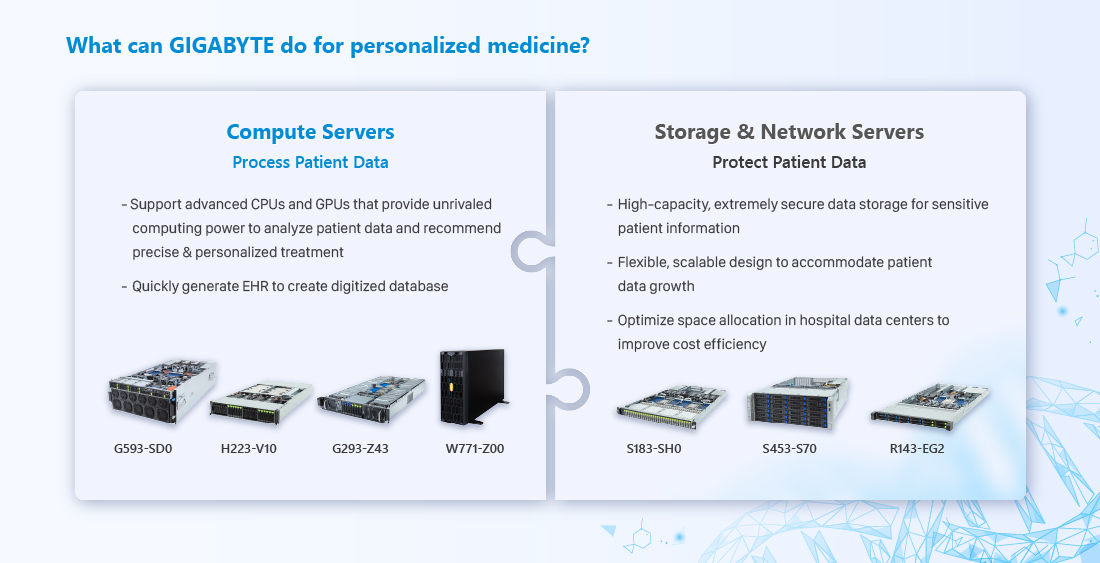
Treatment: Patient monitoring offers nonintrusive, uninterrupted telehealth services
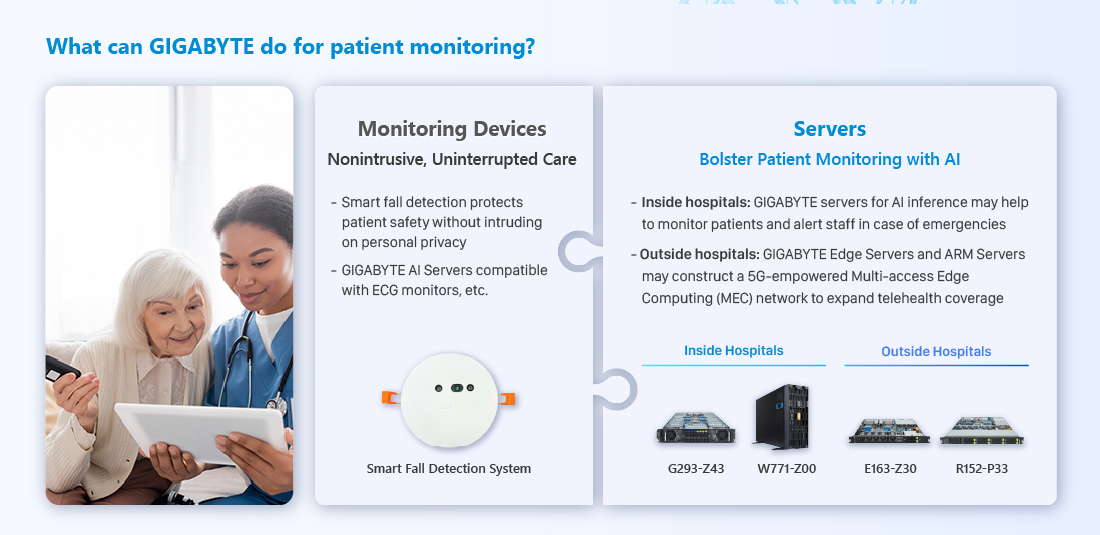
Treatment: Drug development benefits from improved accuracy, safety, and speed by using AI
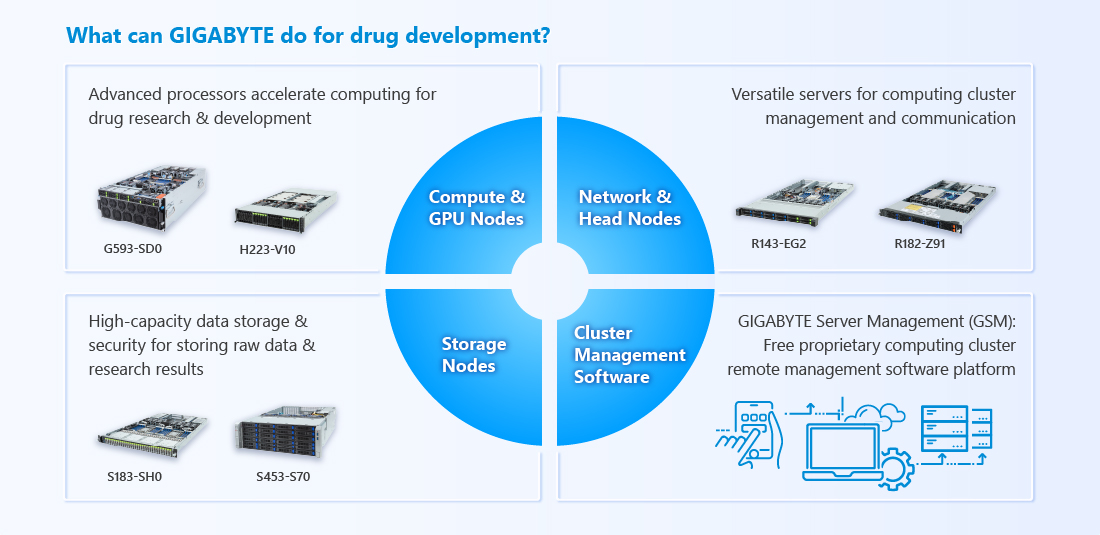
Treatment: Recap
Why GIGABYTE?
Summary
Get the inside scoop on the latest tech trends, subscribe today!
Get Updates
# Artificial Intelligence (AI)
# Machine learning (ML)
# Natural Language Processing (NLP)
# AI Training
# AI Inference
# Deep Learning (DL)
# Supercomputing
# 5G
# Machine Learning Operations (MLOps)
# Computer Vision
# Iot
Get the inside scoop on the latest tech trends, subscribe today!
Get Updates















